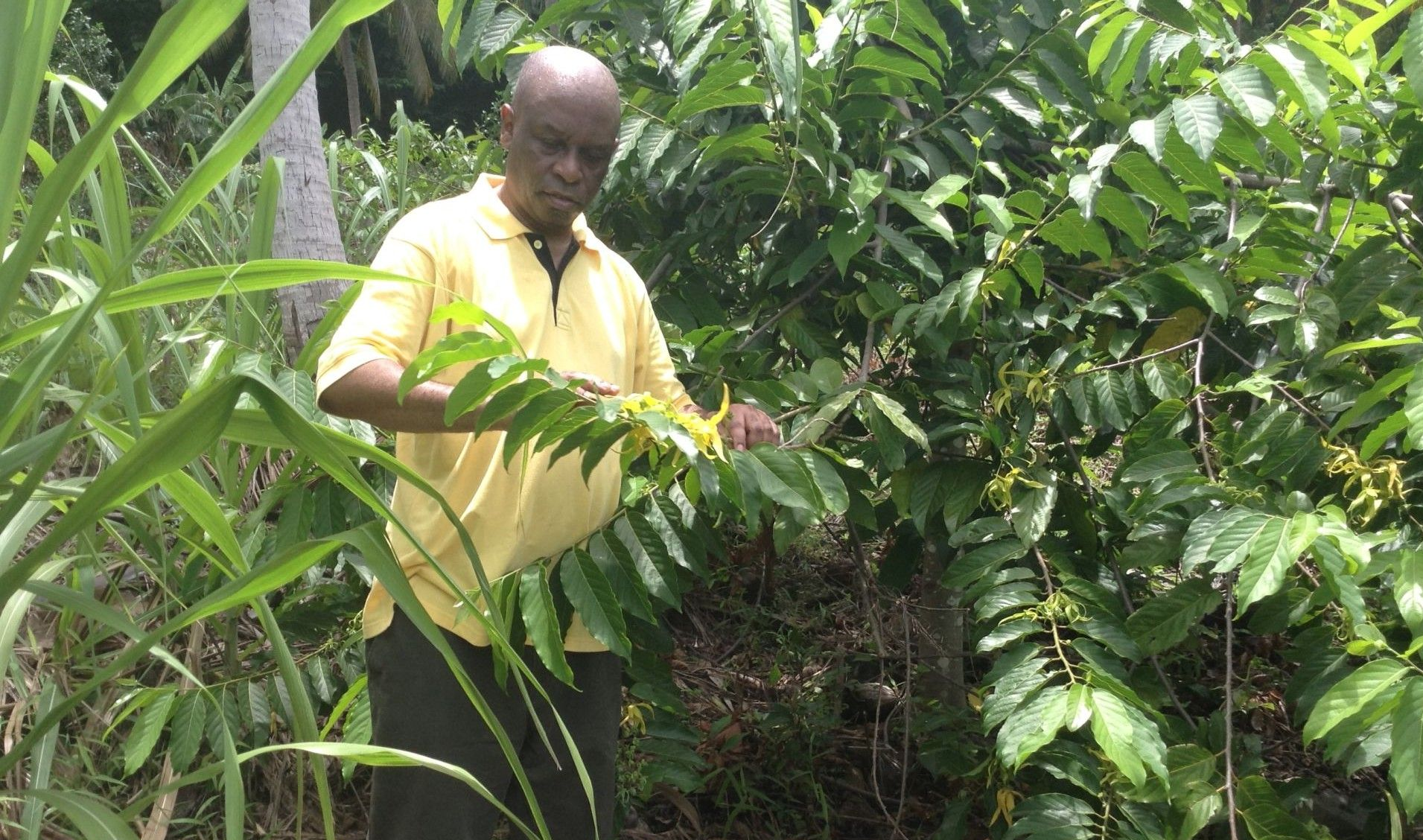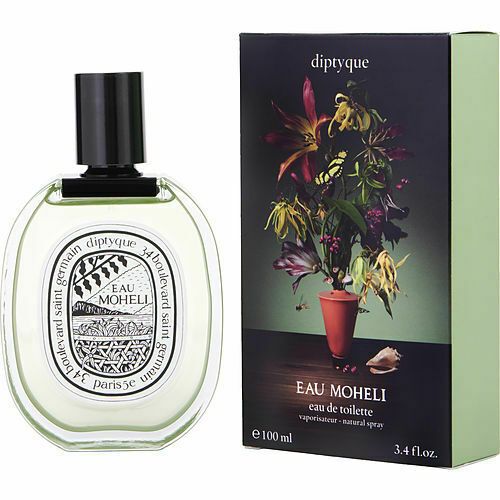
We met at the Beauty World Middle East exhibition, where he generously gave me samples of his Super Extra Ylang-Ylang from the Comoros. As someone who had previously only used Ylang-Ylang from Madagascar, I was curious to try it out.
With just one whiff of his Super Extra Ylang-Ylang, I was blown away. It was unlike anything I had ever experienced before, with a softer, richer, and more refined aroma than any other Ylang-Ylang I had ever used. I knew then and there that I was hooked.
While many people have a love-hate relationship with Ylang-Ylang, Mahmoud's Super Extra Ylang-Ylang is sure to convert even the most skeptical.
The difference lies in the grades, with most people using lower grades that can be overpowering when used in excess. But with the extra and super extra grades, the aroma is pure magic.
But it's not just the quality of the oil that sets Mahmoud apart.He's on a mission to save the trees and ensure that farmers get a fair share of the profits. As someone who grew up surrounded by Ylang-Ylang trees, Mahmoud is passionate about preserving them for future generations.
If you're curious to learn more about Ylang-Ylang, the different grades, and why Mahmoud's Super Extra Ylang-Ylang from the Comoros is the best in the world, keep reading.This is an interview you won't want to miss.
Actually, essential oil distillation is not my educational background. I’m a career diplomat. I consider myself an autodidact of essential oils. I got involved in essential oil distillation because of two things. First, whilst serving at the Permanent Mission of the Comoros to the United Nations in New York, I worked on the elaboration of the UNFCCC (United Nations Framework Convention on Climate Change) which considers what can be done to reduce global warming.
Since I knew that the distillation process of essential oils, in countries like the Comoros, used mainly firewood as a source of energy, it was destroying the forest. So, I decided to search for alternative solutions that could protect the environment. Thus, I found a resolution using burners that could distillate essential oils without using a single piece of wood.
The second point that motivated me was, while serving as an ambassador in countries such as Asia, China, Japan and SE Asia, where there’s a strong aromatherapy culture, I noticed how popular and expensive Ylang-Ylang essential oil was, a plant that originated in this part of the world. Meanwhile back in the Comoros, farmers were not getting a fair share of their own produce. So, because of my passion to protect the environment and help farmers gain an equitable share of their labour, I decided to distillate essential oils.Find out more about UNFCCC
To protect the environment, help the farmers and popularize Ylang-Ylang essential oil in regions where it’s mainly used in perfumery and cosmetics. It’s an outstanding product for wellness.
No doubt the Comoros Ylang-Ylang essential is the best in the world. I’m not saying that because I’m from the Comoros, it’s a natural fact and scientifically proven and accepted by AFNOR (Association Française de Normalisation). After hydro distillation of fresh handpicked flowers, there are five grades of YYEO (Ylang- Ylang essential oil) produced through fractional distillation of the flowers. Super Extra, Extra, 1st, 2nd and 3rd, plus the complete.
The latter is obtained by blending all the grades. From the Comoros, you can obtain all the grades, while Madagascar and other countries produce only the lower grades 1st-3rd.
Indeed, understanding the grades of YYEO (Ylang Ylang Essential Oil) could be very confusing because the hydro distillation process of extracting Ylang-Ylang oil is very special and unique. The essential oil of Cananga odorata (Ylang-Ylang), can be extracted by steam distillation or hydro distillation of its fresh flowers. Because of its pleasing fragrance, strong floral and oriental compositions, YYEO has found wide usage in perfumery, cosmetics, aromatherapy, soaps, and beverages.
The different grades are determined according to the fraction of distillation of the flowers. Super extra grade is obtained after one- hour, Extra grade, after two hours, 1st grade after three to four hours and so on, the whole process could take between 18-24 hours. This isn’t the way other essential oils are extracted.
Yes, Super Extra and Extra grades are mainly used in high end perfumes. Actually, 8 out of 10 of the most expensive perfumes in the world contain Ylang-Ylang super extra or extra grades.
Super extra is considered to be the crème de la crème, since it’s obtained from the first hour of the distillation, it has a concentration of the highest composition of the flowers.
Yes, we only use the ripe Ylang-Ylang followers for the oil.
With 100kg of fresh Ylang-Ylang flowers you can obtain 2-3 liters of YYEO.
The global production of oil is between 100-120 tons per year. In the Comoros, we produce 60-70 tons a year, almost 60% of the world’s production, while Madagascar produces 20-25 tons annually.
We mainly export more than 70% to France and the rest to the US, Germany and Italy.
The new process differs completely from the traditional one because we don’t use a single piece of wood, while with the traditional type requires several trees to distillate 100kg. You can imagine how fast can you destroy the forest of a small island state. The new process is also different because it produces a higher quality oil, and it produces 30% more oil than the traditional one.
Yes, it’s one of the major revenues for the people and the government.
What I would wish to achieve for my country, and farmers involved in this industry, is to transform our raw materials in the Comoros and obtain an equitable share from our production.
The introduction of the new distillation process is an option to make Ylang-Ylang more sustainable.
Eau Moheli by Diptyque is my favorite because you can really smell the Ylang-Ylang flower.

There are a lot of therapeutic advantages in Ylang oil. By smelling Ylang-Ylang oil or rubbing some drops on your skin, it can be useful for memory and thinking skills. YYEO is of high medicinal value due to its composition, it can be used as an antidepressant, antiseptic, hypertensive, and aphrodisiac. It can also be a factor for relaxation by lowering high blood pressure. Ylang-Ylang oil is an excellent product for insomniacs. The essential oil should be mixed with a carrier oil before applying to the skin.
That was a tradition in Southern East Asia but with the invention of sprays, burners and perfumes, the tradition is no longer popular.
In the Comoros, Ylang-Ylang is called the oil of the elders; our parents admire it because it relaxes the muscles and reduces stress.
Thanks to aromatherapy, it’s very popular in Asia. In the past few years, the demand for essential oils has grown in other parts of the world especially in Europe.
Our hope is to obtain a label to designate the Comoros as a protected geographical indication for Ylang-Ylang, to transform and add value in the Comoros, instead of shipping the raw material overseas.